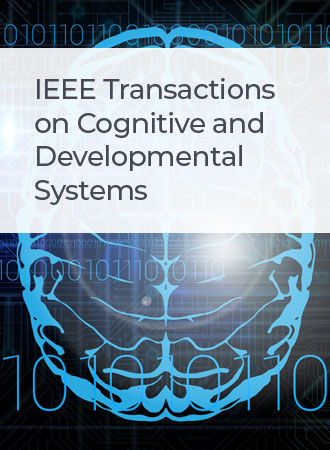基于信道选择的时态卷积网络用于特定患者癫痫发作检测
IF 4.9
3区 计算机科学
Q1 COMPUTER SCIENCE, ARTIFICIAL INTELLIGENCE
IEEE Transactions on Cognitive and Developmental Systems
Pub Date : 2024-07-25
DOI:10.1109/TCDS.2024.3433551
引用次数: 0
摘要
由于突发性和反复发作严重影响人们的生活,计算机辅助癫痫发作自动检测对于准确诊断和及时治疗至关重要。提出了一种基于信道选择的时序卷积网络(CS-TCN)癫痫发作检测算法。首先,将脑电图(EEG)记录分割为2-s的时间间隔,并从时间域和频率域提取特征;然后,采用扩展fisher评分通道选择方法,选择对癫痫检测贡献最大的通道。最后,将选择的脑电信号通道的特征输入到TCN中,以捕获脑电信号固有的时间依赖性并检测癫痫事件。采用波士顿儿童医院和麻省理工学院(CHB-MIT)以及Siena数据集验证CS-TCN算法的检测性能,样本分析的灵敏度分别为98.56%和98.88%,特异性分别为99.80%和99.88%。在事件分析中,该算法的灵敏度分别为97.57%和95.00%,时延分别为6.91和18.62 s, FDR/h分别为0.11和0.39。这些结果超过了两个数据集的最先进的少通道算法。CS-TCN算法在简化模型复杂性和计算需求的同时提供了出色的性能,从而展示了其在家庭环境中促进癫痫检测的潜力。本文章由计算机程序翻译,如有差异,请以英文原文为准。
Channel-Selection-Based Temporal Convolutional Network for Patient-Specific Epileptic Seizure Detection
Since sudden and recurrent epileptic seizures seriously affect people's lives, computer-aided automatic seizure detection is crucial for precise diagnosis and prompt treatment. A novel seizure detection algorithm named channel selection-based temporal convolutional network (CS-TCN) was proposed in this article. First, electroencephalogram (EEG) recordings were segmented into 2-s intervals and features were extracted from both the time and frequency domains. Then, the expanded fisher score channel selection method was employed to select channels that contribute the most to seizure detection. Finally, the features from selected EEG channels were fed into the TCN to capture inherent temporal dependencies of EEG signals and detect seizure events. Children Hospital Boston and Massachusetts Institute of Technology (CHB-MIT) and Siena datasets were used to verify the detection performance of the CS-TCN algorithm, achieving sensitivities of 98.56% and 98.88%, and specificities of 99.80% and 99.88% in samplewise analysis, respectively. In eventwise analysis, the algorithm achieved sensitivities of 97.57% and 95.00%, with delays of 6.91 and 18.62 s, and FDR/h of 0.11 and 0.39, respectively. These results surpassed state-of-the-art few-channel algorithms for both datasets. CS-TCN algorithm offers excellent performance while simplifying model complexity and computational requirements, thus showcasing its potential for facilitating seizure detection in home environments.
求助全文
通过发布文献求助,成功后即可免费获取论文全文。
去求助
来源期刊

IEEE Transactions on Cognitive and Developmental Systems
Computer Science-Software
CiteScore
7.20
自引率
10.00%
发文量
170
期刊介绍:
The IEEE Transactions on Cognitive and Developmental Systems (TCDS) focuses on advances in the study of development and cognition in natural (humans, animals) and artificial (robots, agents) systems. It welcomes contributions from multiple related disciplines including cognitive systems, cognitive robotics, developmental and epigenetic robotics, autonomous and evolutionary robotics, social structures, multi-agent and artificial life systems, computational neuroscience, and developmental psychology. Articles on theoretical, computational, application-oriented, and experimental studies as well as reviews in these areas are considered.
 求助内容:
求助内容: 应助结果提醒方式:
应助结果提醒方式:


